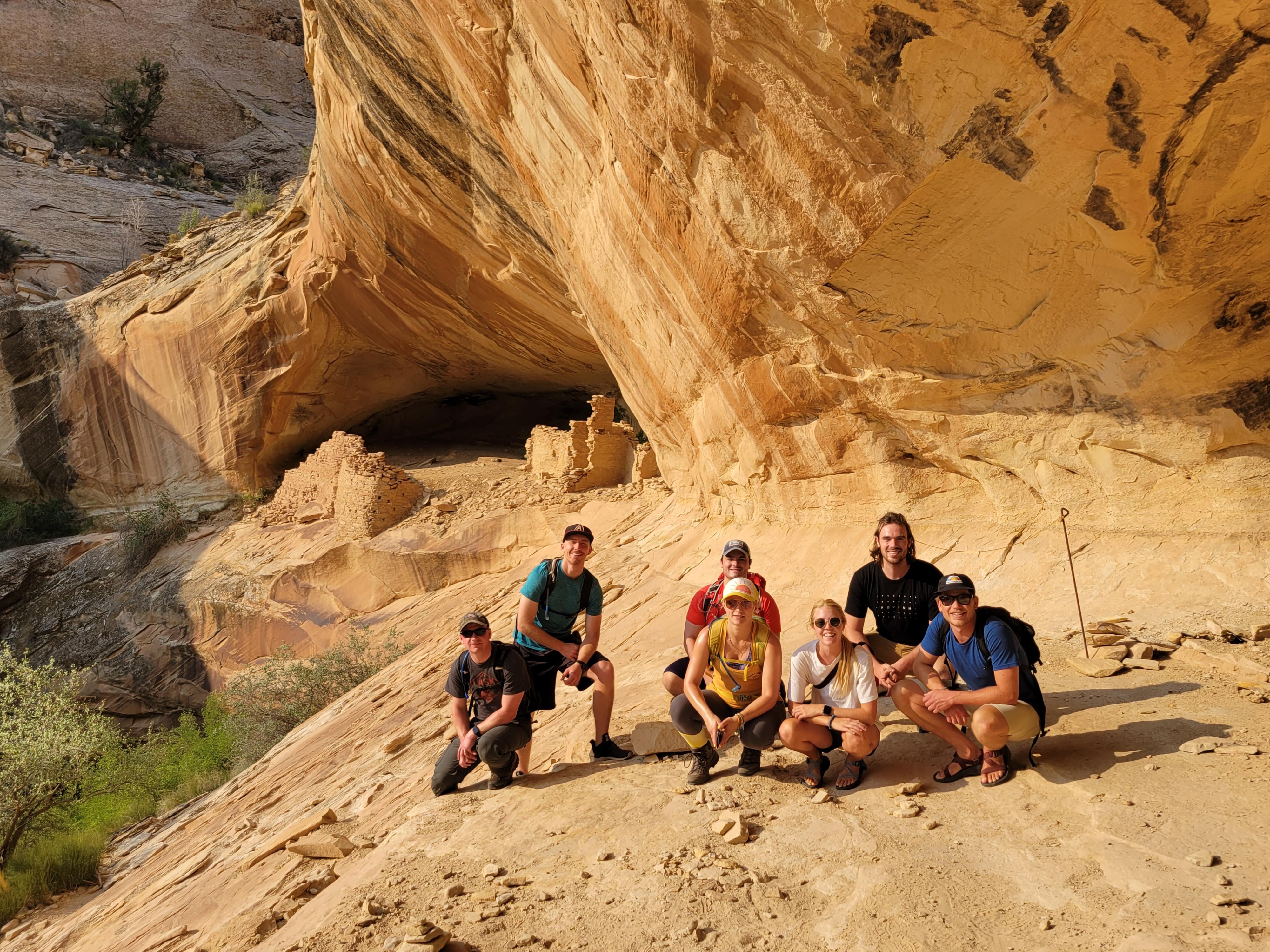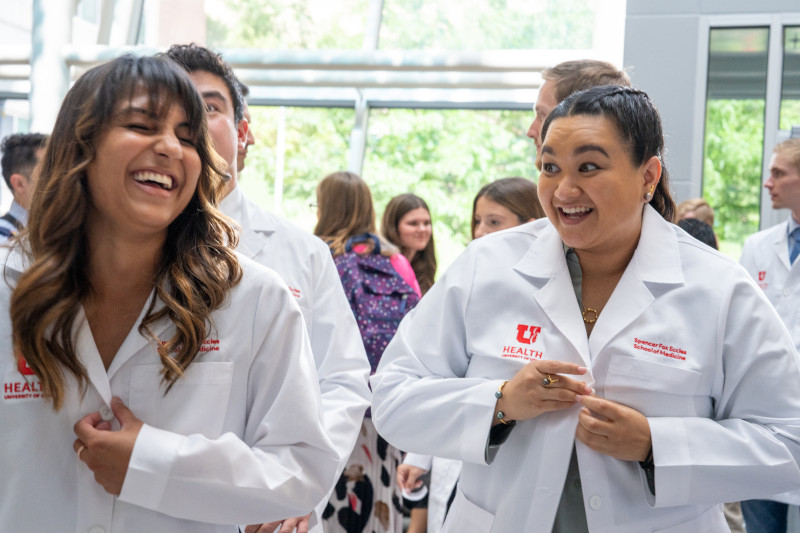

Rural Primary Care Track
Mission
The Rural Primary Care Track aims to advance the rural physician workforce. To do this, the track encourages and prepares students to become rural primary care providers. Through didactic and immersive teaching, students learn rural primary care best practices.
RPCT students will develop a broad skill set necessary for rural careers. These include excellent clinical skills, community leadership, disease prevention, and health promotion.

Annual Tuition Scholarship
RPCT students are eligible for up to $45,000 in tuition support.
Funds are distributed through an annual tuition scholarship. This means the students' scholarship value will increase each year, as they complete the track.
Students who choose residencies in primary care will be eligible for additional funds upon graduation.

Education
Rural Primary Care Track students will complete the following:
- TRUE Program: A 15 credit, four year graduate certificate program that encompasses didactic and immersive learning.
- AHEC Scholars Program: Students will complete the program over four years. Students receive a letter of recommendation from the program director upon completion.
- RUUTE Rural Outreach Program: Students must complete at least two rural outreach program trips during medical school.
- Rural Longitudinal Integrated Clerkship: All MD students must complete an 11-month longitudinal integrated clerkship in their second year. In the RPCT, students must complete this in a rural site.

How to Apply
15 students will be picked for the Rural Primary Care Track.
The application will be made available to all class of 2028 students. Students will receive the application via email once accepted to the U.
The RPCT admissions committee will select students based on their lived experience, exceptional strength, deep interest, and strong commitment to serving rural communities.

Frequently Asked Questions
-
If you have additional questions about the RPCT, you should be able to find the answer here.
-
The RPCT implements a holistic admissions process incorporating educational and experiential components. The program committee will prioritize selecting students with a strong background and history in working with rural communities. Applicants should convey knowledge, understanding, personal connection, and interest in addressing health disparities, advancing rural community health, and entering a career in primary care (pediatrics, med-peds, internal medicine, family medicine).
-
Yes, students who are not Utah residents are encouraged to apply to the program, if interested.
Preference may be given to incoming students who are from the Intermountain West region, or are from the following states: Utah, Idaho, Montana, Wyoming, Arizona, New Mexico, Nevada, and Colorado.
Incoming students from Idaho, Montana, and Wyoming will still be bound by established agreements with the state of Idaho, WICHE (Western Interstate Commission on Higher Education) and SFESOM.
-
RPCT students, in addition to the standard foundational curriculum, are required to complete the following:
- TRUE Graduate Certificate
- Utah AHEC Scholars Program
- A rural LIC
-
Current rural LIC placements are located in:
- Logan (Cache County)
- St George (Washington County)
- Roosevelt (Duchesne County)
- Park City/Heber (Summit and Wasatch Counties)
- Tooele
- Price (Carbon County)
RPCT students will rank their rural LIC site preferences after gaining insights from faculty and current/former LIC students. Placements for the 2026/2027 academic year will be finalized by the end of the fall/winter semester in 2025.
While student preferences will be considered, placement is not guaranteed. The RPCT and LIC directors will work closely with students to ensure optional site matches that align with individual needs and program goals.
-
There are several pathways/certificates available at SFESOM. Though we encourage students to explore these experiences and opportunities, students will need to prioritize RPCT to maintain funding.
MD/PhD students are eligible to participate in the RPCT. In addition to tuition support from the MD/PhD program, the RPCT will provide financial support for the rural LIC placement year.
-
Yes.
RUUTE Scholars is not considered a pathway. It instead focuses on an array of rich community, clinical, and research experiences and activities in rural and underserved communities throughout medical school.
Some of the RUUTE Scholars activities are required for RPCT students, including RUUTE Rural Outreach Program trips and the Rural Speaker Series.
-
Yes, MD/PhD students can be a RPCT student. In addition to the MD/PhD scholarship, they will receive a relocation stipend for their time spent completing the Rural LIC.
-
Yes.
As part of the PROMIS2U program, participants need to re-apply to SFESOM. Applicants will have the chance to apply to the RPCT once they have been accepted.
-
Participants are highly encouraged to pursue residency training in a primary care specialty (family Medicine, internal medicine, pediatrics, or med-peds).
Though this is not an RPCT requirement, students who choose one of these four residency programs will receive additional scholarship funding upon graduation.
Students do not need to stay in Utah for residency.
-
Non-residents will be considered for this program, but preference will be given to Utah residents. If a non-resident is accepted as a RPCT, they will receive the same financial assistance as a resident, as outlined above.
-
No. Scholarship funding is awarded annually, based on whether students complete the program year-to-year.
If at any point students decide to stop the RPCT, they won't need to pay back previously awarded scholarship funding.
If they drop out, they will not continue to receive scholarship funding.
Contact Us
Have further questions? Reach out to:
David Sandweiss, MD, TRUE Director, david.sandweiss@hsc.utah.edu
Olivia Spencer, MPA, Program Manager, olivia.spencer@hsc.utah.edu